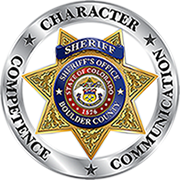Victim Impact Facilitator
This program was established in 2010 and is comprised of volunteers who want to make a difference and believe people can change. Victim Impact classes, taught at the jail, help inmates identify the impact of their behavior on others, themselves, family, friends and community.
Men’s classes run for 8 weeks, are facilitated by a team of two volunteers and meet once per week for two hours. We are currently developing a new women’s Victim Impact class slated to begin second quarter of 2020. Approximately two hours of preparation time, which includes reviewing inmate homework, is required. Class curriculum includes use of speakers, documentary DVD and discussion with emphasis on accountability and change. New facilitators will be paired with an experienced facilitator until fully trained.


